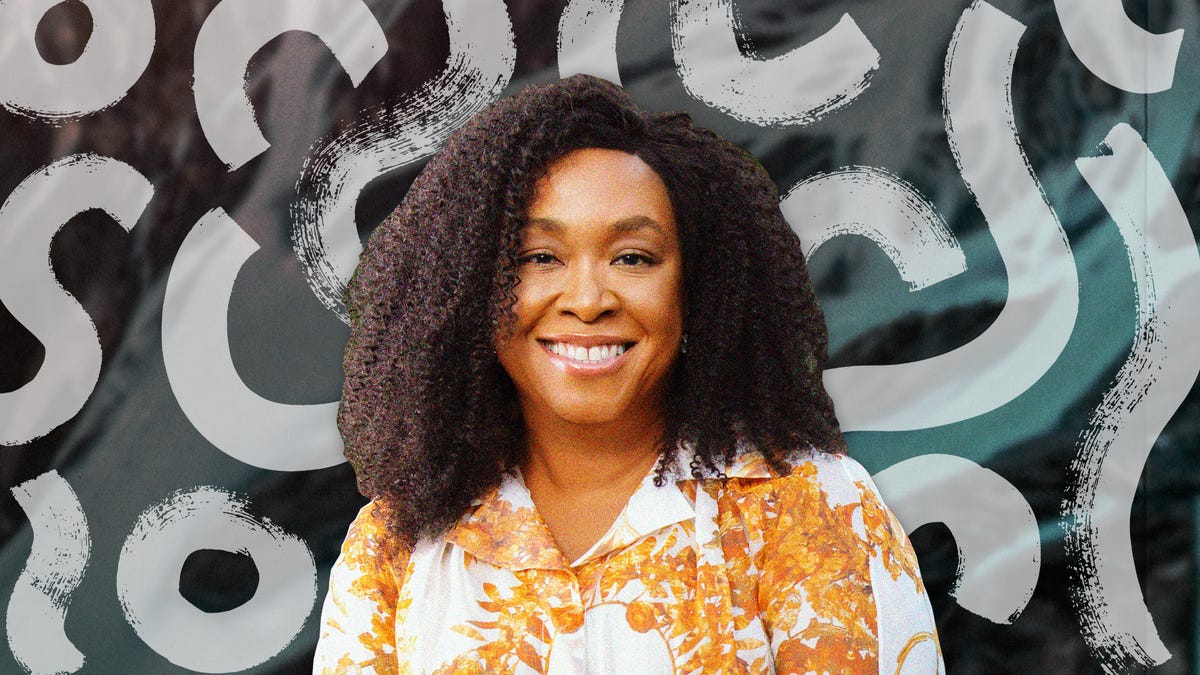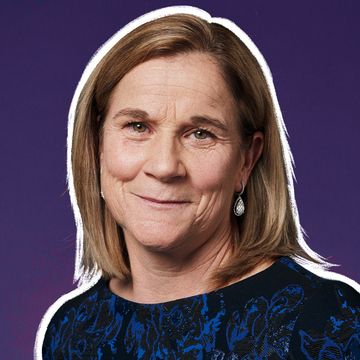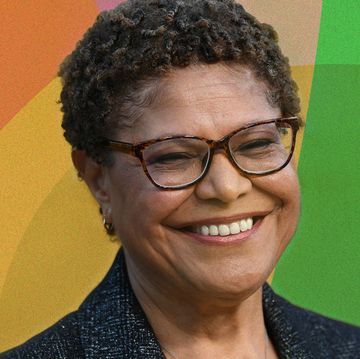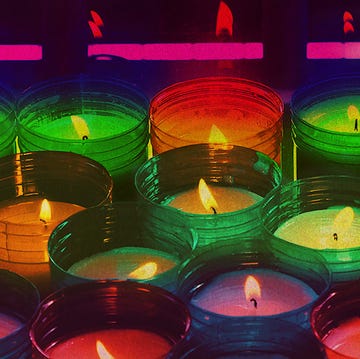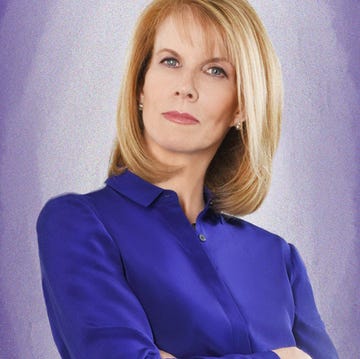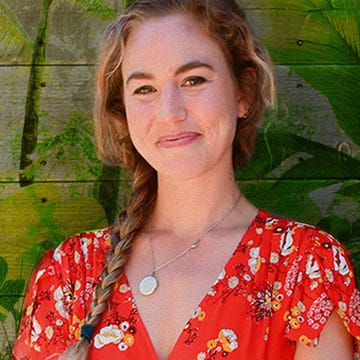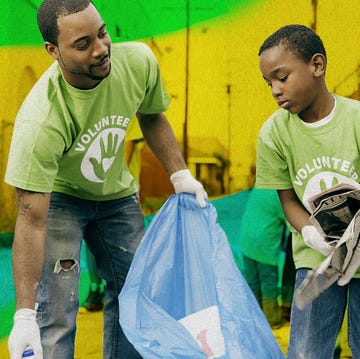She was an experience of a woman, tall and sturdy with a gregarious sense of humor that swatted away correctitude and respectability. More than once, she jokingly called Dr. Martin Luther King Jr. a “heifer” — to his face — and he, in loving jest, nicknamed her “Tiny.” Georgia Gilmore didn’t suffer airs, phoniness, or racism in any iteration. In 1955, after a bus driver in Montgomery, Alabama, ejected her and left her stranded, the single mother of six waged an enduring, one-woman refusal to patronize the city’s public transportation system.
Two months later, when the Montgomery bus boycott began coalescing into a citywide movement following the arrest of Rosa Parks when she refused to give up her seat on a bus to a white passenger, Gilmore, a 35-year-old cook and midwife by trade, again mobilized one of her own. She organized an anonymous network of fish-frying, pork chop-smothering, collard green-finessing Black women who sold delicious homemade dinners, cakes, and pies to help fund the gas, insurance, and repairs necessary to keep the fleet of as many as 325 donated vehicles road-ready to sustain the boycott.
To protect both the cooks and their customers from potential backlash or jeopardizing their jobs — more than half of the employed Black women in Montgomery at that time worked for white families — only Gilmore knew who prepared and purchased the food. She called her group “the Club From Nowhere.” That way, she reasoned, if she was ever asked where the money came from, she could honestly and accurately answer “nowhere.”
She once said, “You cannot be afraid if you want to accomplish anything. You got to have the will, the spirit, and above all, you got to have the get-up.”
Acts of protest and revolution have historically been powered by ordinary-but-extraordinary Black women like Gilmore: leaders and strategists, some formally educated, most not, the majority whose names aren’t instantly recognizable outside of their communities or included in documented academic and historical retellings. But movements don’t move without money, and Black women’s goal-focused philanthropy has funded and shifted power dynamics from Black Lives Matter to reproductive rights, one organized act of resistance after another.
Even at the bottom of the net-worth scale and despite the estimated $964,400 that Black women lose in earnings over the course of a 40-year career because of the wage gap, according to The NonProfit Times and a study done by Blackbaud, 54 percent of African American women still regularly give to support causes and organizations doing the work they care about.
For Black women, activism and philanthropy are bridged by the same desire to support the people they love and resolve issues that impact their families and communities, says Tahira Christmon, the vice president of external affairs at ABFE, a national philanthropic organization that partners with foundations, nonprofits, and individuals to expand advocacy for and investment in Black empowerment. Still, she adds, Black women are generally reluctant to identify themselves as philanthropists, and that’s largely because of the American narrative around giving.
“The way our country perceives philanthropy is why most Black people don’t consider themselves philanthropists. When you think about philanthropy, you typically think of white billionaires taking rockets to space. Traditionally, those donors don’t deeply invest in our issues. But I think the way that my grandmother tithed to the church and my mom advocated for better schools and playgrounds in my neighborhood is absolutely the work of philanthropy,” Christmon explains.
“Philanthropy obviously is a measurement of giving dollars, but that’s a very limited view. If we just gave dollars, but nobody invested time, lifted a voice, lent a hand, or stood up against injustices, we’d just have happy philanthropists convinced that they did their part while communities remain in distress,” Christmon adds. “I would dare say that philanthropy requires activism, and activism requires philanthropy for both to be effective tools for progress.”
In 2018, after what she calls a “profound breakthrough” during a therapy session, writer and activist Rachel Cargle thought, “All Black women deserve this opportunity toward healing.” Her birthday was coming up, and instead of accepting gifts, she launched an online fundraiser to help finance therapy for Black women, who, according to the American Psychological Association, are almost two times more likely than Black men to feel sad most or all of the time. Cargle’s community-centered act of philanthropy caught fire on social media and raised almost $10,000 in just 24 hours.
She kept going, fueled by that response and the euphoria of creating impact for a worthy but chronically underserved population, and grew that initial altruistic thought into the Loveland Foundation, a full-fledged nonprofit that has, as of last year, reportedly procured more than 72,000 hours of mental-health care for Black women.
If the increased focus on racial justice seemed to be a priority following the 2014 murder of Michael Brown by a white police officer and the resulting expressions of fury, trauma, and despair in every region of the United States, the outrage didn’t translate to a marked increase in support or funding from major donors. Six long years later, however, as the world watched the killing of George Floyd, the Covid-19 quarantines of entire cities and communities minimized the easy distractions that had always made systemic racism easier to dismiss and ignore. Donations to Black-led organizations spiked, some by as much as 1,000 percent. Still, a 2020 report from the National Committee for Responsive Philanthropy studied a cross-section of 25 community foundations — some the largest in the country — and found that less than 1 percent of their combined grant-making was specifically allocated to benefit Black folks in cities like New Orleans, Houston, and Orlando.
This is where Black women are stepping in to fill the gaps and build intentional, sometimes niche support. In the collective spirit of sou-sou, an informal savings system popular in West African and Caribbean countries that pools an equal amount of money from contributors for a set period of time, giving circles are an increasingly popular way for Black women to collaborate in their shared desire to donate to their causes of choice.
“Giving circles are a powerful advocacy tool to make collaborative investments. I may not be able to give $6,000 on my own, but I can connect with other like-minded people to say, ‘We’re going to invest in some Black-led, woman-led and -focused organization and pool our money to make a greater impact.’ That’s a form of advocacy,” says Christmon. “You’re saying, ‘I believe in this initiative, organization, and community, and I’m prioritizing their impact with all I have to give.’”
Black women have led and organized revolutions — dangerous confrontations, culture shifts, community improvements, battles for policy change — and in the C-suites of foundations and nonprofits, they’re engaged in similar groundwork to bolster philanthropy’s response to the diversity of needs in the Black community.
As national initiatives focusing on Black boys and men have increased steadily since 2010, and only about 5 percent of the record-breaking $450 billion in philanthropic donations of 2019 (or any other year) has centered Black girls and women, collectives like the Black Feminist Fund prioritize woman-powered and gender-expansive movements. The group — founded by Hakima Abbas, Amina Doherty, and Tynesha McHarris, all veteran champions of philanthropy and social justice — has received nearly $30 million in seed investments from funders, including the Ford Foundation, and plans to raise $100 million over the next two years to provide support and funding to Black feminist organizations in Africa, the Americas, and Europe.
The ways that Black women mobilize and connect to extend opportunities and make space for more women is just another iteration of our philanthropic spirit in action, says Toya Randall, the founder and curator of Voice. Vision. Value. Black Women Leading Through Philanthropy, a multimedia narrative platform that elevates and documents the impact of Black women’s leadership in professional philanthropy.
“Whether we’re talking about minimum- and livable-wage jobs, or we’re making six figures and upwards, we are still having to negotiate, advocate, and substantiate our value in ways that no one else does. As Black women working in philanthropy, we come from a lived experience that strengthens our advocacy, position, and allyship because while a Black woman CEO is advocating for equitable pay, so is her grandmother, her mother, her aunties, her sisters, her cousins,” Randall explains.
“So, I think the struggle is shared, and those of us who are in different positions of access and power, to some extent, carry that responsibility with us very seriously, which is why the question of advocacy and philanthropy go hand in hand for us,” Randall says. “This work is beyond a paycheck.”
It’s a daily effort to redefine who qualifies as a philanthropist and what philanthropy looks like to include the tireless community-building investments of millions of Black women like Gilmore, who passed away in 1990 as she cooked for the 35th commemoration of the historic March on Selma. Women who’ve made war rooms out of their dining room tables to map out a plan and turned their sedans into shuttles to carry folks to an ever-distant polling place. Women who monetize their cooking genius to support a movement that is bigger than any present issue.
“Society has greatly benefited from the free labor of Black women committed to getting up, saying something, and making change happen,” Christmon adds.
Because she spoke out against the bus driver who ejected her from that city bus, Gilmore was fired from her job as a cook for the National Lunch Company in Montgomery, but she pivoted, encouraged by Dr. King, to convert her own dining room into a home-based restaurant. Comradery is born in the sanctity of a Black woman’s kitchen, and in the 381-day stretch of the boycott, Gilmore turned hers into a central place of planning, unity, and possibility, just like so many Black women intend to do in the philanthropy they create.
Janelle Harris Dixon is a writer and editor in southeast Washington, D.C., who covers stories about the intersections of race, gender, culture, and class. She’s unapologetically absent from Instagram, but you can find her @thegirlcanwrite on Twitter.
Get Shondaland directly in your inbox: SUBSCRIBE TODAY

